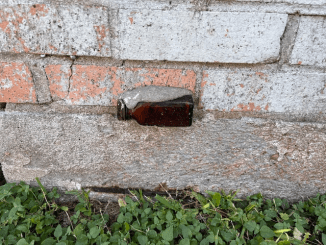As men reach their 50s and beyond, many begin to experience a natural decline in testosterone levels. This hormone is essential for maintaining muscle mass, bone density, sexual health, and overall vitality. A decrease in testosterone can lead to symptoms like fatigue, reduced libido, muscle loss, and even mood swings. Fortunately, there are several natural ways to boost testosterone levels, and you don’t need to wait months to see results. In just seven days, you can start taking control of your testosterone levels with a few simple lifestyle changes. Let’s dive into how to increase your testosterone naturally!
1. Exercise Regularly: Strength Training & HIIT

One of the most effective and immediate ways to boost testosterone is through regular exercise. Strength training (such as weightlifting and resistance exercises) increases muscle mass, which naturally stimulates testosterone production. Additionally, High-Intensity Interval Training (HIIT) has been shown to elevate testosterone levels. This workout method alternates between short, intense bursts of exercise and brief recovery periods. It not only promotes testosterone production but also improves your overall fitness.
Why Strength Training Works
When you engage in strength training, your body produces more testosterone to repair muscle fibers. Over time, as muscle mass increases, testosterone production remains higher, helping to maintain both strength and vitality.
HIIT’s Role in Testosterone Boosting
HIIT is particularly effective because it involves intense bursts of effort, which trigger hormonal responses in the body, including testosterone release. These types of workouts boost metabolism and encourage fat loss while supporting overall testosterone health.
2. Eat a Testosterone-Boosting Diet
Your diet plays a critical role in maintaining healthy testosterone levels. The right foods provide the nutrients necessary to support testosterone production and general hormonal balance. Focus on consuming a variety of whole, nutrient-dense foods.
Healthy Fats: A Must for Hormone Production
Healthy fats such as avocados, olive oil, and fatty fish (like salmon and mackerel) are rich in omega-3 fatty acids, which are crucial for hormone production. These fats help regulate your hormones and keep your testosterone levels balanced.
Video : Scientific Trick That Increases Your Testosterone 400% In 7 Days!
Lean Proteins and Zinc-Rich Foods
Incorporating lean proteins such as chicken, turkey, and eggs will support muscle repair and aid in testosterone synthesis. Additionally, foods like oysters, red meat, and spinach are rich in zinc, a key mineral in the production of testosterone.
Magnesium and Vitamin D
Magnesium-rich foods like dark leafy greens, nuts, and seeds help regulate testosterone levels. Additionally, ensuring adequate levels of vitamin D through sun exposure and foods like fortified dairy and eggs supports the body’s ability to produce testosterone.
3. Prioritize Quality Sleep
Sleep is crucial for maintaining healthy testosterone levels. Studies have shown that sleep deprivation can cause a significant drop in testosterone production. Aim for 7-9 hours of quality sleep each night to give your body ample time to release testosterone during deep sleep.
Why Sleep Matters for Testosterone
Deep sleep is when your body releases the most testosterone. A consistent sleep schedule and a comfortable sleep environment can promote deep, restorative sleep, allowing your testosterone levels to reach their optimal potential.
Improving Sleep Hygiene
To improve your sleep, limit screen time before bed, maintain a regular sleep schedule, and make sure your bedroom is cool, dark, and quiet. These small changes can help you sleep better, and in turn, boost your testosterone levels.
4. Manage Stress & Reduce Cortisol Levels

Chronic stress leads to the overproduction of cortisol, a hormone that negatively affects testosterone levels. High cortisol levels can interfere with testosterone production, leading to low energy and decreased vitality. Managing stress through relaxation techniques can significantly improve testosterone production.
Stress Reduction Techniques
Try incorporating mindfulness meditation, yoga, or deep breathing exercises into your daily routine. Spending time in nature or engaging in hobbies you enjoy can also help alleviate stress, keeping cortisol levels under control and allowing your testosterone to thrive.
5. Maintain a Healthy Weight
Excess body fat, particularly around the abdomen, is linked to lower testosterone levels. Fat cells contain an enzyme called aromatase, which converts testosterone into estrogen, further lowering testosterone levels.
How Weight Affects Testosterone
To combat this, it’s important to maintain a healthy weight through a balanced diet and regular exercise. Losing excess body fat, especially around the abdominal area, can help prevent the conversion of testosterone into estrogen, thus supporting higher testosterone levels.
Balancing Your Diet and Exercise
Eating nutrient-rich foods while engaging in regular physical activity can help you achieve and maintain a healthy weight. By reducing fat, you’ll promote optimal testosterone production and improve overall well-being.
6. Incorporate Natural Testosterone-Boosting Herbs & Supplements
Several natural supplements can also help support testosterone production. While it’s always best to consult with a healthcare professional before introducing new supplements into your routine, here are some popular options:
- Fenugreek: Known to increase testosterone levels and improve strength.
- Ashwagandha: Reduces stress and supports testosterone production.
- Tribulus Terrestris: Used to enhance libido and hormonal balance.
- Tongkat Ali (Malaysian Ginseng): Boosts testosterone and improves sexual health.
- D-Aspartic Acid: An amino acid that stimulates testosterone synthesis.

7. Limit Alcohol Consumption
Excessive alcohol consumption disrupts hormone production and negatively impacts testosterone levels. Chronic drinking can lead to an increase in estrogen levels while decreasing testosterone. To maintain hormonal balance, limit alcohol intake to moderate levels.
The Impact of Alcohol on Testosterone
Alcohol inhibits the production of luteinizing hormone, which plays a role in stimulating testosterone production. Moderating your alcohol intake can help prevent the decline of testosterone and maintain a balanced hormonal state.
8. Avoid Environmental Toxins
Certain chemicals, known as endocrine disruptors, interfere with hormone production and can lower testosterone levels. Common sources of these toxins include BPA found in plastics, pesticides on non-organic foods, and chemicals in personal care products.
Reducing Exposure to Toxins
To reduce your exposure to endocrine disruptors, opt for BPA-free products, choose organic produce, and switch to natural cleaning and personal care products.
9. Stay Socially Active & Engage in Healthy Relationships
Studies suggest that men who are socially active and have positive relationships tend to have higher testosterone levels. Engaging in meaningful conversations, participating in social activities, and nurturing romantic relationships can help improve mental well-being and hormone balance.
The Role of Social Interaction
Positive social interactions, especially those that make you feel supported and valued, can enhance testosterone levels and improve your overall emotional health.
Video : Men Over 50: THIS INCREASES Low Testosterone in 7 Days!
10. Consult a Healthcare Professional
If you suspect that your testosterone levels are low, it’s important to consult with a healthcare provider. A blood test can accurately measure your testosterone levels and help determine whether natural interventions or medical treatments are needed.
Why Professional Guidance Matters
Low testosterone may be related to underlying health conditions, making it essential to seek professional advice. A healthcare provider can guide you in choosing the most effective treatment options for your specific needs.
Conclusion: Natural Ways to Boost Testosterone in Just 7 Days
As men age, it’s natural for testosterone levels to decline. However, by incorporating simple changes such as regular exercise, a testosterone-boosting diet, quality sleep, stress management, and weight maintenance, you can boost your testosterone levels and enjoy a more energized, youthful life. Natural supplements and lifestyle choices, such as limiting alcohol intake and avoiding environmental toxins, can further support testosterone health.
If you’re over 50 and feeling the effects of low testosterone, don’t wait—take action today and start boosting your testosterone levels in just 7 days!


